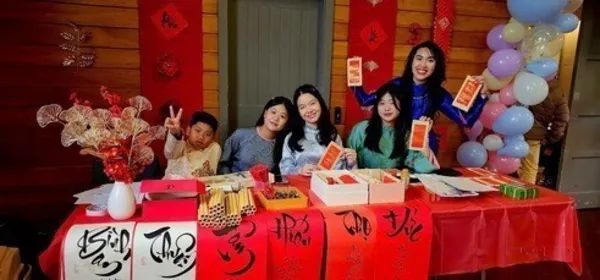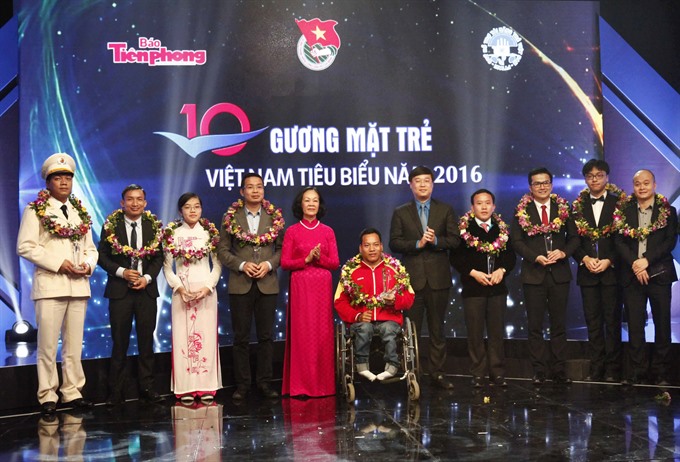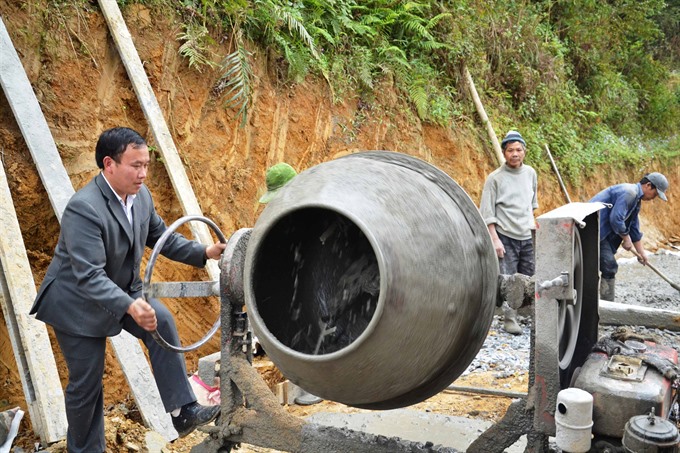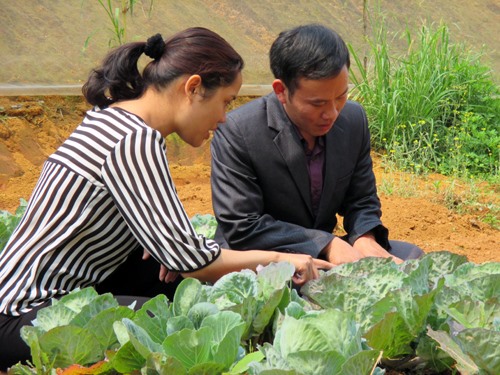 Society
Society

Giàng Seo Châu, 31, Chairman of the People’s Committee of Mản Thẩn Commune, a remote area in northern mountainous Lào Cai Province’s Si Ma Cai District, was named one of Viet Nam’s 10 most outstanding young people of 2016.
 |
| Giàng Seo Châu (fourth right) receives flowers and presents from Trương Thị Mai, member of the Politburo, Secretariat and Head of the Mass Mobilisation Commission of the Central Committee of the Communist Party of Việt Nam. – VNA/VNS Photo Văn Điệp |
LÀO CAI — Giàng Seo Châu, 31, Chairman of the People’s Committee of Mản Thẩn Commune, a remote area in northern mountainous Lào Cai Province’s Si Ma Cai District, was named one of Viet Nam’s 10 most outstanding young people of 2016.
Châu, a Mông ethnic-minority man, was honoured for his contributions to the commune he lives in.
His achievements include increasing the income per capita for thousands of ethnic minority people in the commune to about VNĐ22 million (US$970) per year, more than four times higher than the income per capita of the district and reducing the poor household rate from over 90 per cent to 40 per cent during his term from 2012-16.
Châu began serving as vice chairman of the committee in 2012 under a Government programme to support 64 poor districts across the country by sending 600 young intellectuals to serve as vice chairmen of commune-level People’s Committee.
“The first thing I want to do is pull local residents out of poverty,” he said.
In the first year of his term, Châu - who holds a master’s degree from the Việt Nam National University of Agriculture, piloted planting cabbages in 8 ha in the commune. Cabbages sold well that year, allowing him to expand the cabbage patch to 13ha in 2013.
Lừu Thề Pao, a resident who participated in the model said “I earned a profit of VNĐ20 million ($880) in the cabbage season.”
Pao said the money he gained from planting cabbages helped his family greatly. He will plant 5,000 cabbages and 3,000 kohlrabies this year.
In 2014, Châu planted tam thất (Panax pseudoginseng). One year later, when he harvested the first 20 kilos of the flower buds, he earned VNĐ10 million ($440).
Châu then decided to raise the area to 1 ha in his garden. He urged local residents to join him. Three households participated, raising the total area to 4 ha.
All the flower buds had been ordered now, with a price of VNĐ500,000 (US$22) per kilo. The orders came from Hà Nội, Hải Phòng and HCM City. Some orders were even delayed as there weren’t enough flower buds, he said.
Harvest time is July and August each year, he said.
If each household planted 1-2ha of tam thất, and had a stable customer base, they could earn hundreds of millions of đồng each year, he said.
Also, between 2012 and 2016, Châu encouraged local residents to donate more than 10 ha of land to build rural roads, making the commune the first in the district to finish the national programme’s criteria for new-style rural areas.
Châu was elected in 2016 as chairman of the People’s Committee for 2016-2021.
Giàng Seo Chùa, deputy secretary of the commune’s Party Committee said Châu was young but dedicated. He had agricultural knowledge to teach locals how to grow crops with high productivity.
Châu has been selected as one of the outstanding young people of 2016 by the Hồ Chí Minh Communist Youth Union late March.
“The award is motivation for me to continue fighting against poverty and develop our commune,” Châu said.
Poor but studious
Châu was the fifth child in his family, born to illiterate parents. At first, his parents did not send him to school, his education only began after local officials came to his house to encourage his parents to let him go to school, a common practice in mountainous areas.
He had to climb several mountains to go to school. “It requires a huge effort to go to school every day,” he said.
“But learning Vietnamese is much harder for ethnic minority people,” he added.
In 2007, Châu passed the enrollment examinations of two universities, the Việt Nam National University of Agriculture and the Hà Nội Pedagogical University 2. Châu chose to study at the agriculture university, based in Hà Nội.
Although Châu was exempt from paying tuition fees and dormitory fees, his father forbade him from studying at the university because they could not afford the cost of living for Châu in a city like Hà Nội.
Châu and other family members persuaded his father, with Châu saying he would get part-time jobs to cover his costs. Finally, his father relented.
Châu washed dishes at restaurants, worked as a porter and cut branches from trees in farms and gardens to earn money as a student. He graduated in 2012.
While working as vice chairman, Châu studied for a master’s degree at the university, completing it in 2014.
He said “Education is really important, it is vital for developing my hometown.” He wants to send more youngsters in the commune to schools and eventually university. — VNS
 |
| Giàng Seo Châu gives instruction on agricultural manufacturing to local farmers in Mản Thẩn Commune, Si Ma Cai District, the northern province of Lào Cai. – VNA/VNS Photo Hồng Ninh |
 |
| Châu (right) in a cabbage field in Mản Thẩn Commune.— Photo baotintuc.vn |




